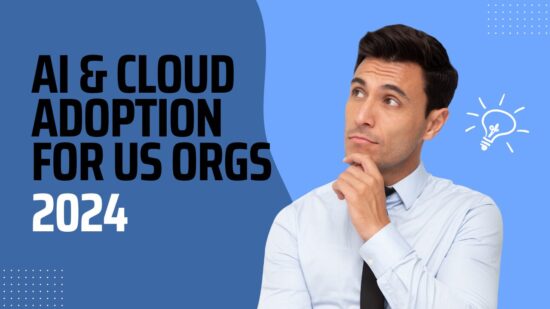Understanding ERP Systems
In today’s fast-paced business world, companies must rely on advanced technology to stay ahead of the competition. One such technology that has taken the corporate world by storm is the Enterprise Resource Planning (ERP) system. These systems streamline business operations, enhance efficiency, and provide real-time visibility into critical business processes.
In this article, we’ll look into an ERP system, why it’s essential for businesses, and the differences between full-scale integrated ERP systems, such as NetSuite and SAP, and small self-integrated systems.
What Is an ERP System?
An ERP system is a software solution that integrates all aspects of a business’s operations into a unified platform. It streamlines and automates various business processes, including accounting, inventory management, production planning, human resources, customer relationship management, and more.
By integrating these functions into a single system, businesses can eliminate data duplication, minimize errors, and increase efficiency.
Key Features of an ERP System
ERP systems typically include several key features that make them indispensable for businesses. These features include:
Centralized Database
An ERP system provides a single, centralized database that all departments and functions can access. This eliminates the need for duplicate data entry and ensures that all data is up-to-date and accurate.
Real-Time Reporting
With an ERP system, businesses can generate real-time reports that provide insights into the company’s performance, allowing management to make informed decisions.
Workflow Management
An ERP system streamlines workflows, automating routine tasks and freeing up employees to focus on higher-value tasks.
Why Businesses Need ERP Systems
Benefits of an ERP System for Small Businesses
- Increased Efficiency: An ERP system automates routine tasks, reducing time and effort. This allows employees to focus on higher-value tasks, increasing overall efficiency.
- Improved Data Accuracy: An ERP system provides a single, centralized database that eliminates the need for duplicate data entry. This reduces the risk of errors and ensures that all data is up-to-date and accurate.
- Enhanced Collaboration: An ERP system enables employees to collaborate more effectively, sharing data and insights across departments and functions.
Benefits of an ERP System for Large Businesses
- Scalability: An ERP system can grow with a business, providing the functionality and capacity needed to handle increasing volumes of data and transactions.
- Improved Visibility: An ERP system provides real-time reporting and analytics, giving management insights into the company’s performance and allowing them to make informed decisions.
- Increased Agility: An ERP system enables businesses to respond quickly to market or business environment changes, providing the agility needed to stay ahead of the competition.
Full-Scale Vs. Self-Integrated ERP Systems
When it comes to ERP systems, small businesses often find themselves at a crossroads—should they opt for full-scale ERP systems, like NetSuite and SAP, or should they stick with self-integrated systems that they can build and customize on their own?
We’ve combined the critical differences between these two options to help businesses make informed decisions.
What Is a Full-Scale Integrated ERP System?
A full-scale integrated ERP system is a single software solution that covers all aspects of a business’s operations. It integrates all departments and functions into a single platform, providing real-time visibility and control over operations.
These systems provide a centralized database that enables businesses to manage their operations, including accounting, inventory management, human resources, customer relationship management, and supply chain management.
What Are Small Self-Integrated ERP Systems?
On the other hand, small self-integrated systems are software solutions that businesses tie together using various applications. For instance, a company might use one software solution for accounting, another for inventory management, and another for customer relationship management. These solutions are then integrated using APIs (Application Programming Interfaces) or other methods to enable data sharing and real-time visibility.
Scope and Complexity
- Full-Scale ERP Systems: Full-scale ERP systems are comprehensive solutions designed to meet the needs of complex and enterprise-level organizations. They offer various features and functionalities across different business functions, including finance, supply chain, human resources, customer relationship management, etc. These systems cater to the diverse requirements of large businesses and provide extensive scalability.
- Self-Integrated Systems: Small businesses often opt for self-integrated systems, typically using individual software applications or custom-built solutions for specific business functions. These systems are usually more straightforward and focused, addressing specific needs without the comprehensive scope of full-scale ERP systems. They offer greater flexibility in customization and cost-effectiveness but may lack certain advanced functionalities.
Implementation and Maintenance
- Full-Scale ERP Systems: Implementing a full-scale ERP system requires significant planning, resources, and expertise. It often involves a complex deployment process, including system configuration, data migration, and employee training. Businesses may need external consultants or dedicated IT staff to manage the implementation and ongoing maintenance. The cost and time investment associated with these systems can be substantial.
- Self-Integrated Systems: Small businesses have the advantage of flexibility regarding self-integrated systems. They can choose individual software applications or build their systems based on their unique requirements and budget. While this approach allows businesses greater control over the implementation and maintenance processes, it may require some technical expertise. Updates, integrations, and customization can be managed internally or with the help of service providers.
Scalability and Growth
- Full-Scale ERP Systems: Full-scale ERP systems like NetSuite and SAP are designed to accommodate the needs of growing businesses. These systems offer scalability, allowing organizations to expand their operations, add new functionalities, and cater to increasing transaction volumes. They provide a robust infrastructure capable of handling the complexities associated with business growth. However, the scalability of these systems often comes at a higher cost, both in terms of licensing fees and infrastructure investments.
- Self-Integrated Systems: Small businesses that opt for self-integrated systems may face scalability challenges as they grow. Adding new functionalities or integrating additional applications can become complex and time-consuming. However, some self-integrated systems offer the flexibility to choose and integrate new tools and applications as needed, allowing businesses to tailor their systems to their evolving requirements.
Cost Considerations
- Full-Scale ERP Systems: NetSuite and SAP are known for their comprehensive functionalities and robust infrastructure, but they come with a significant price tag. Licensing fees, implementation costs, and ongoing maintenance expenses can be substantial for small businesses. Moreover, companies may need to allocate resources for training employees on these complex systems.
- Self-Integrated Systems: Self-integrated systems often provide cost advantages for small businesses. They allow companies to select and purchase individual software applications or build customized solutions based on their budget. While there may be upfront costs for purchasing licenses or development, ongoing expenses can be more manageable, especially when compared to full-scale ERP systems.
An ERP system is a powerful tool that can help businesses of all sizes streamline their operations, improve efficiency, and make better decisions. By embracing the power of technology and integrating all functions into a single platform, businesses can position themselves for success in today’s rapidly changing business environment. Ultimately, the right ERP system can help companies to achieve their goals, remain competitive, and grow over time.
Don’t miss out on the benefits an ERP system can bring to your business. Take the next step today and embark on a transformative journey with our experienced team at BACS Consulting Group. Contact us today to explore how we can help your business thrive.






